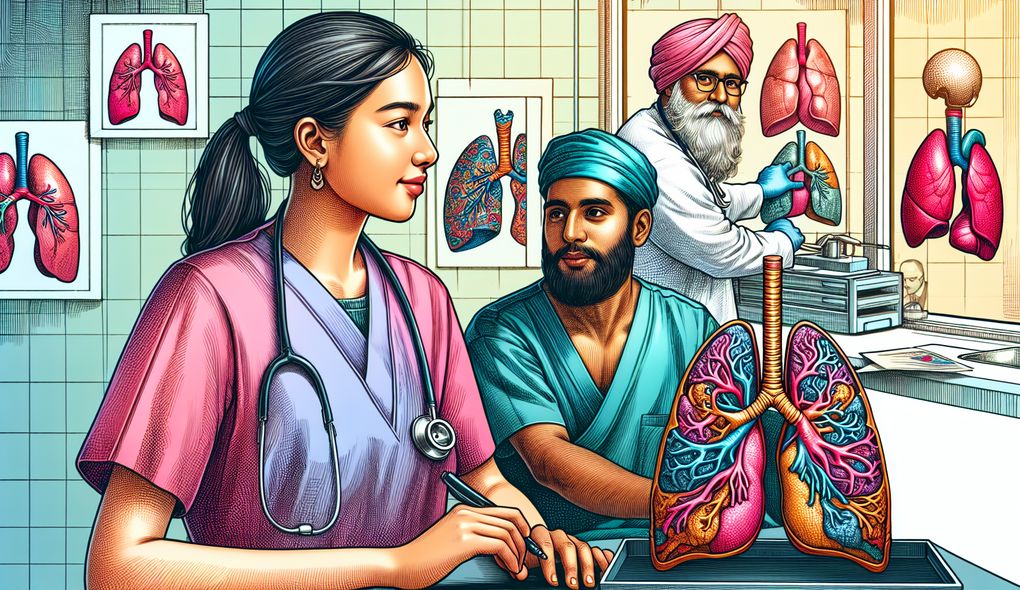Are you eligible for or holding a Drug Enforcement Administration (DEA) license to prescribe medication?
INTERMEDIATE LEVEL

Sample answer to the question:
Yes, I am eligible for a Drug Enforcement Administration (DEA) license to prescribe medication. I have completed a graduate-level nurse practitioner program with a focus on pulmonary care, and I have more than 2 years of clinical experience in pulmonary care. During my clinical experience, I have prescribed and managed medications for patients with respiratory conditions, including inhalers and other therapies. I am familiar with pharmacology as it relates to respiratory medications and have a strong understanding of the latest treatments and advancements in respiratory care.
Here is a more solid answer:
Yes, I am eligible for a Drug Enforcement Administration (DEA) license to prescribe medication. I have completed a graduate-level nurse practitioner program with a focus on pulmonary care, which included coursework on pharmacology and prescribing practices. During my clinical experience, I have prescribed and managed medications for patients with various respiratory conditions, including chronic and acute pulmonary disorders. I am knowledgeable about different classes of respiratory medications and their appropriate use based on individual patient needs. For example, I have successfully prescribed inhalers and other therapies to optimize respiratory health and improve patient outcomes. Additionally, I stay updated on the latest research and advancements in respiratory medications to provide the most effective treatments for my patients.
Why is this a more solid answer?
The solid answer expands on the basic answer by providing more specific information about the candidate's coursework on pharmacology and prescribing practices. It also includes examples of prescribing medications and highlights the candidate's commitment to staying updated on advancements in respiratory care. To improve further, the candidate could mention any patient outcomes or specific achievements related to prescribing medication.
An example of a exceptional answer:
Yes, I am eligible for a Drug Enforcement Administration (DEA) license to prescribe medication. In addition to completing a graduate-level nurse practitioner program with a focus on pulmonary care, I have pursued additional certifications and training in pharmacology to enhance my competency in prescribing medications. Throughout my clinical experience in pulmonary care, I have consistently demonstrated my ability to develop comprehensive treatment plans that involve prescribing and managing medications for patients with complex respiratory conditions. For instance, I have successfully identified appropriate medications for different types of pulmonary disorders and adjusted dosages based on individual patient responses. This has resulted in improved patient outcomes and enhanced quality of life. Furthermore, I actively participate in conferences and professional development opportunities to stay abreast of the latest advancements in respiratory medications and optimize patient care. By combining my expertise in respiratory care and pharmacology, I aim to provide the best possible treatment options to my patients.
Why is this an exceptional answer?
The exceptional answer goes beyond the solid answer by highlighting the candidate's pursuit of additional certifications and training in pharmacology. The candidate also provides specific examples of their ability to develop comprehensive treatment plans and achieve positive patient outcomes through prescribing medication. Additionally, they emphasize their commitment to continuous learning and staying updated on advancements in respiratory care. To make the answer even stronger, the candidate could further discuss their collaboration with pulmonologists and other healthcare professionals in prescribing medication to optimize patient care.
How to prepare for this question:
- Review the requirements for obtaining a Drug Enforcement Administration (DEA) license to prescribe medication and ensure you meet the eligibility criteria. Familiarize yourself with the application process.
- Reflect on your past experiences prescribing medication, specifically for respiratory conditions. Think about any achievements or positive patient outcomes related to your prescribing practices.
- Stay updated on the latest research and advancements in respiratory medications. Read medical journals and attend conferences or webinars in the field of respiratory care.
- Prepare examples that demonstrate your knowledge of different classes of respiratory medications and their appropriate use. Be ready to discuss how you adjust medication dosages based on individual patient responses and clinical guidelines.
- Highlight your commitment to collaborative practice within an interdisciplinary healthcare team. Discuss how you work with pulmonologists and other professionals to develop treatment plans and ensure optimal patient care.
What are interviewers evaluating with this question?
- Skills
- Experience

